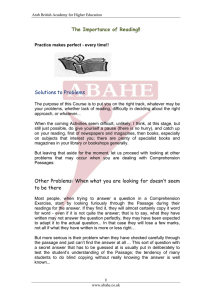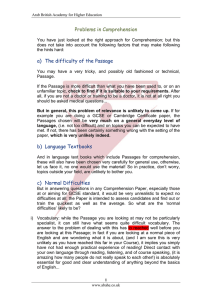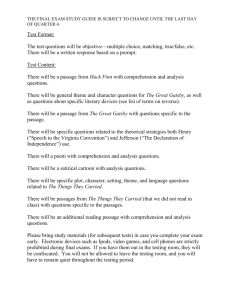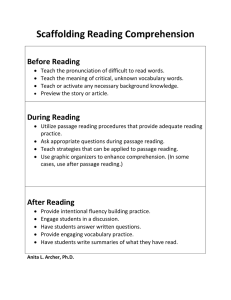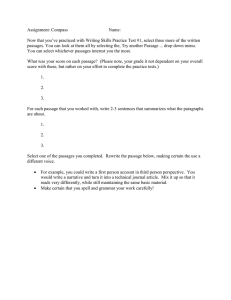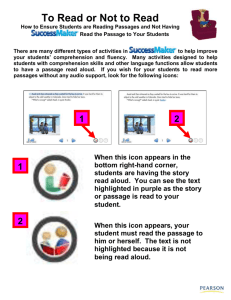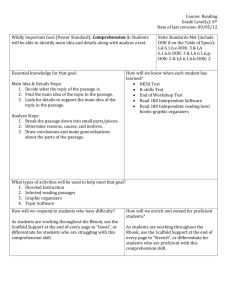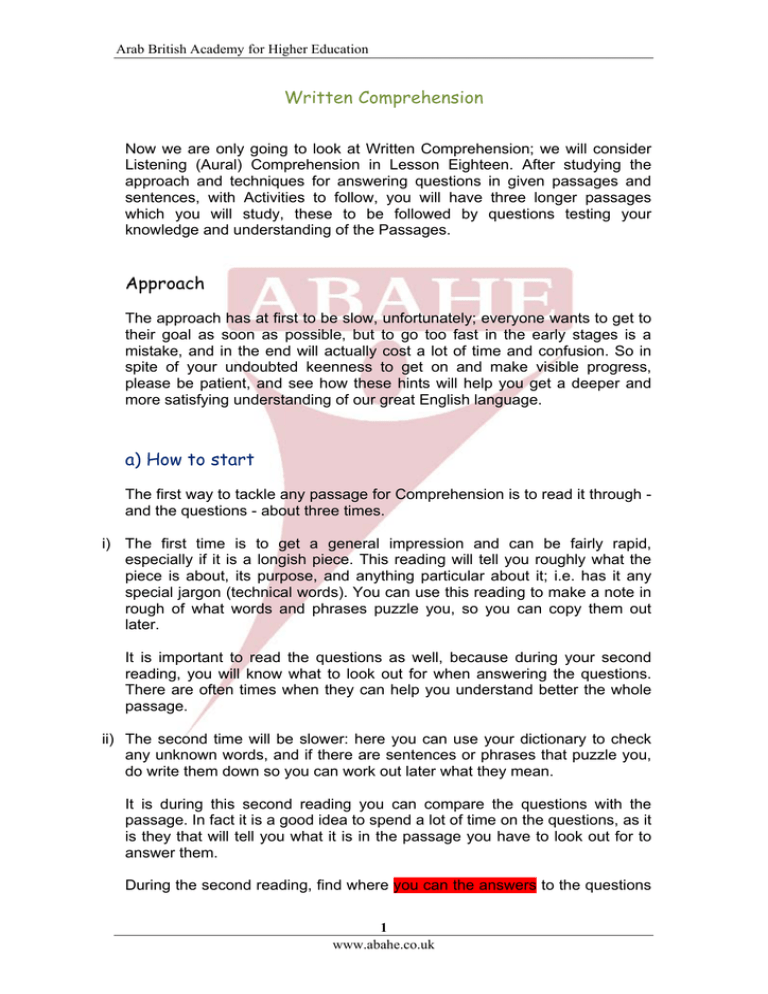
Arab British Academy for Higher Education
Written Comprehension
Now we are only going to look at Written Comprehension; we will consider
Listening (Aural) Comprehension in Lesson Eighteen. After studying the
approach and techniques for answering questions in given passages and
sentences, with Activities to follow, you will have three longer passages
which you will study, these to be followed by questions testing your
knowledge and understanding of the Passages.
Approach
The approach has at first to be slow, unfortunately; everyone wants to get to
their goal as soon as possible, but to go too fast in the early stages is a
mistake, and in the end will actually cost a lot of time and confusion. So in
spite of your undoubted keenness to get on and make visible progress,
please be patient, and see how these hints will help you get a deeper and
more satisfying understanding of our great English language.
a) How to start
The first way to tackle any passage for Comprehension is to read it through and the questions - about three times.
i) The first time is to get a general impression and can be fairly rapid,
especially if it is a longish piece. This reading will tell you roughly what the
piece is about, its purpose, and anything particular about it; i.e. has it any
special jargon (technical words). You can use this reading to make a note in
rough of what words and phrases puzzle you, so you can copy them out
later.
It is important to read the questions as well, because during your second
reading, you will know what to look out for when answering the questions.
There are often times when they can help you understand better the whole
passage.
ii) The second time will be slower: here you can use your dictionary to check
any unknown words, and if there are sentences or phrases that puzzle you,
do write them down so you can work out later what they mean.
It is during this second reading you can compare the questions with the
passage. In fact it is a good idea to spend a lot of time on the questions, as it
is they that will tell you what it is in the passage you have to look out for to
answer them.
During the second reading, find where you can the answers to the questions
1
www.abahe.co.uk
Arab British Academy for Higher Education
and write them down in rough, and afterwards you can check in your
dictionary and reference books the words, phrases, and sentences you
copied earlier with a view to finding their meaning, especially if they relate to
any of the questions.
iii) The third reading is for you to fill in any gaps left during the second. By
looking carefully at the questions, you can often fill in these gaps, and don’t
forget you don’t need to look equally carefully at the whole passage; you can
concentrate mainly on the parts of it that the questions deal with.
During this reading, you can continue to answer the questions as you come
to the parts of the passage dealing with them, not necessarily in the order
the questions are presented. Sometimes the order can be quite different
All Rights Reserved © Arab British Academy for Higher Education
2
www.abahe.co.uk

